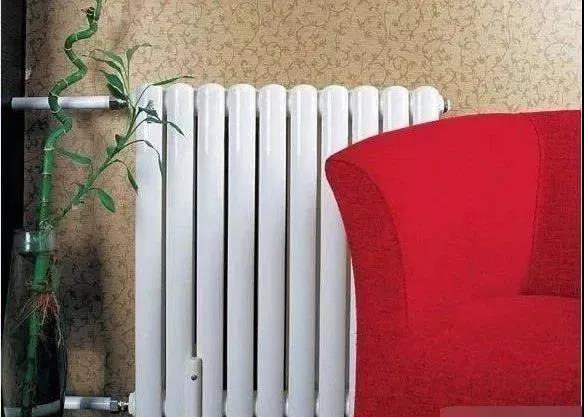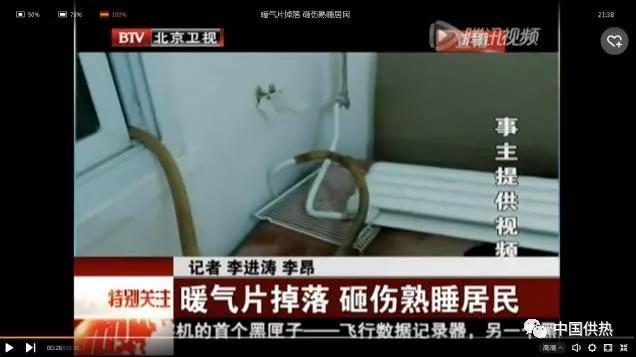Success Stories
Is it safe to use the heater? What details should I pay attention to?
Published on:
2023-04-20
So, is heating safe to use? Will radiators burn children? Will the radiator explode?

Question 1: Will the temperature of the radiator burn children?
Answer: Generally speaking, the surface temperature of the radiator is only about 45 degrees. We will feel very hot when we touch it with our hands. As long as we do not touch the radiator for a long time, we will not get burned. Even the skin of a child will not cause any harm.
Question 2: Will the paint on the surface of the radiator be poisonous?
Answer: Some small brand radiator manufacturers are too eager for quick success. There is no standard for the spray paint on the surface of the radiator. When heating the radiator in winter, harmful substances on the paint surface, such as formaldehyde, will be continuously released. In and out, it will cause very large pollution to the home environment.
It is recommended that when choosing a radiator, it is best to carefully understand the paint surface material of the radiator to ensure green environmental protection. Generally speaking, the radiators produced by regular manufacturers have strict regulations in terms of production technology, health and environmental protection, just like Senrat HVAC, which uses environmentally friendly plastic powder specially designed for Aksu radiators, zero formaldehyde, no pollution, Consumers don't have to worry about the poisonous paint on the radiator.
Question 3: Will the radiator leak or explode?
Answer: The radiators used in our home generally have a pressure rating of 1.0-1.2MPa, while the actual heating pressure of the home heating is 0.4-0.8MPa. Generally, there will be no accidents such as water leakage and bursting. For example, Sunrat radiators have been tested for water leakage 5 times before leaving the factory. The test pressure of 1.5MPa is much higher than the actual heating pressure of 0.5-0.8MPa, so that each radiator is watertight. Therefore, as long as it is a radiator that has passed the inspection by a regular manufacturer and is used correctly and reasonably, water leakage and explosion will not occur.
Question 4: Is the water in the heating pipe poisonous, and can it be used?
Answer: The heat of the heating is realized by the hot water circulation in the heating system. If the water in the heating pipe is taken privately, it is very easy to cause the heating system to be unable to guarantee the heating due to lack of water, which will affect the heating effect and seriously It will cause a heat failure accident. In addition, heating water contains a large amount of chemical reagents, which are used for water softening and pipeline maintenance, and heating water is used for domestic water, which will be harmful to health.
Question 5: If the radiator is hung on the wall, will it fall down and hurt people?


The radiator hanging on the wall suddenly fell, injuring the sleeping user and soaking the floor and bed at home. And what you can see is that the interface where the radiator is installed, the place where the expansion bolt should have been installed is full of sawdust.
As we all know, radiators are generally made of steel, copper and other metals, which are very heavy. In order not to take up space and keep the interior beautiful, most families will choose to install the radiator vertically, which involves the problem of radiator accessories, such as the number of expansion nails and hooks is closely related to the height and width of the radiator, and their quality The pros and cons are also an important factor affecting the safety of the installation. We recommend choosing the accessories provided by the original factory of the radiator and a professional installation company to install the radiator.
All in all, if we buy radiators from regular manufacturers, install and use them according to the relevant specifications of radiator heating installation, there will be no safety problems.
However, there are some details that need to be paid attention to in the safe use of radiators, which should be kept in mind:
one. The supporting legs of the radiator cannot be sealed with cement
During the heating process, the pipes expand with heat and contract with cold due to temperature changes. The radiator itself has to be displaced. If the supporting legs of the radiator are sealed with cement, the radiator cannot be displaced, and the connection points of the radiator pipes must bear a large tensile force. Cause water accidents, in the heating process in previous years, this kind of phenomenon occurred frequently.
two. It is best not to have a cover on the radiator
Adding "packaging" heat dissipation facilities first affects heat conduction, convection and radiation, thereby affecting the heating effect. After experiments, the room temperature with "package" is about three degrees Celsius lower than without "package". In addition, the failure of heating facilities cannot be found in time and it is not convenient for inspection and maintenance. If the interior needs to be decorated, it is necessary to facilitate maintenance of heating facilities. It is recommended to use an integral mobile decorative cover.
three. When the radiator is pressurized to test the water, it is best to leave someone at home
If it is a newly built community, the property management of the community needs to do a good job of pipeline inspection, check whether the valve is loose or slippery, whether the internal pipe network is insulated or not, and whether various instruments are malfunctioning, etc. If you encounter technical difficulties, you can contact the heating company Timely feedback.
In the old open community, it is best to keep people in the residents' homes. If running, running, dripping, or water leakage occurs, the water supply and return valves can be quickly closed, and the household appliances can be moved to prevent power leakage from hurting people, and the heating department should be quickly notified for repairs.
In addition, the heating department also reminded the public that if there is air in the heating pipe, the exhaust valve may be blown open by the air pressure when the water is pressurized. A round-tipped chopstick was used to block it to prevent burns.
4. Heating facilities cannot be modified without authorization
Indoor heating systems are designed, constructed, and installed in strict accordance with technical specifications. Unauthorized modification of heating facilities will often change the operating conditions of the heating system, easily lead to hydraulic imbalance, and affect the heating effect.
In addition, if you modify the heating facilities by yourself, due to the lack of necessary construction and installation tools and experience, it is easy to damage the heating facilities. cause economic loss.
If the user really needs to modify the indoor heating facilities for special reasons, he can apply to the heating unit, and the heating unit can only make changes after the heating unit confirms that the modification will not affect the heating effect, and the user should bear the relevant costs.


